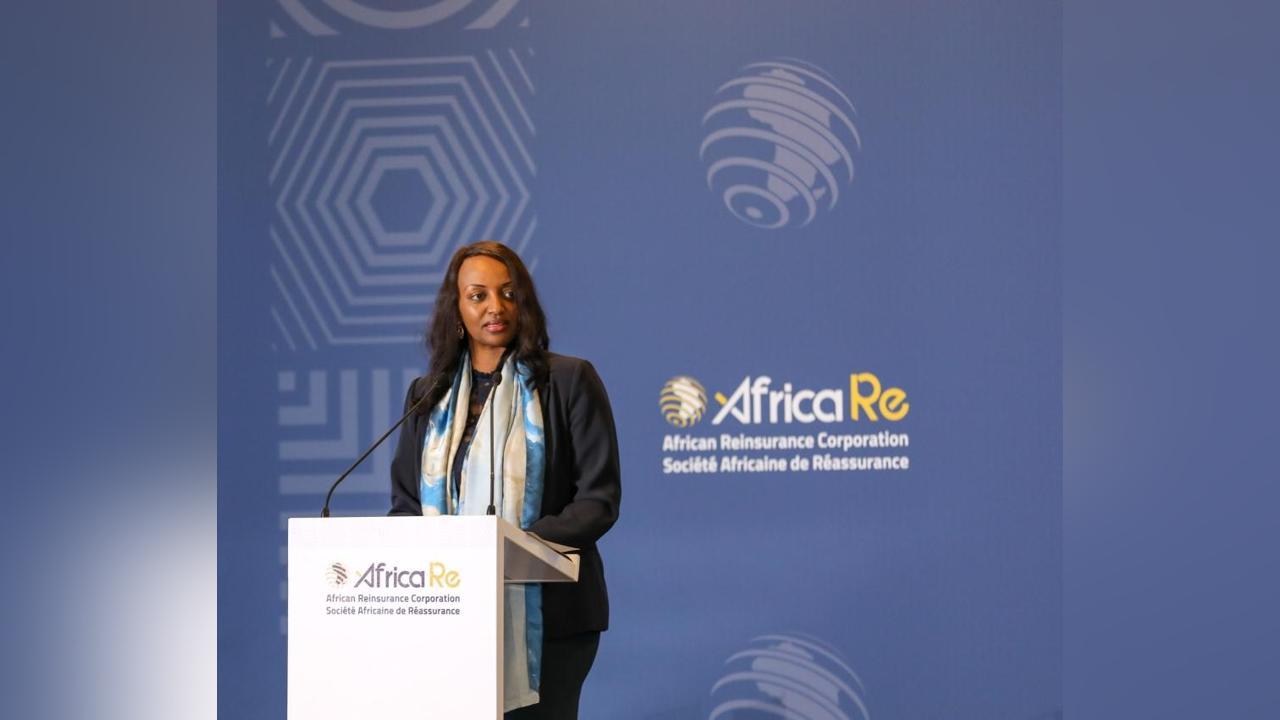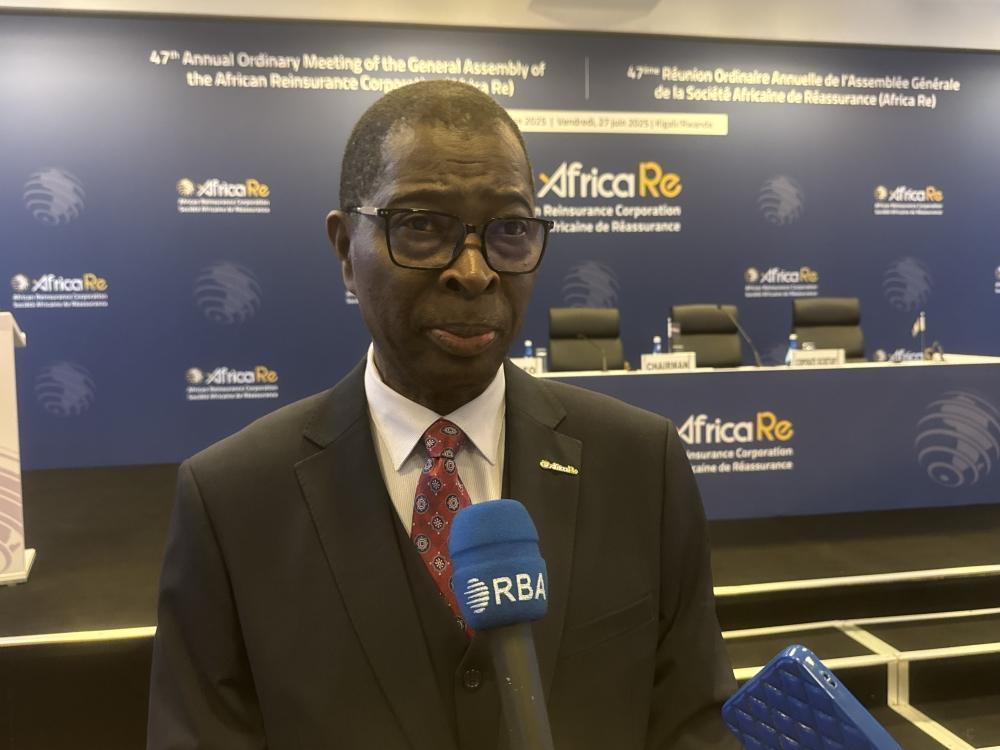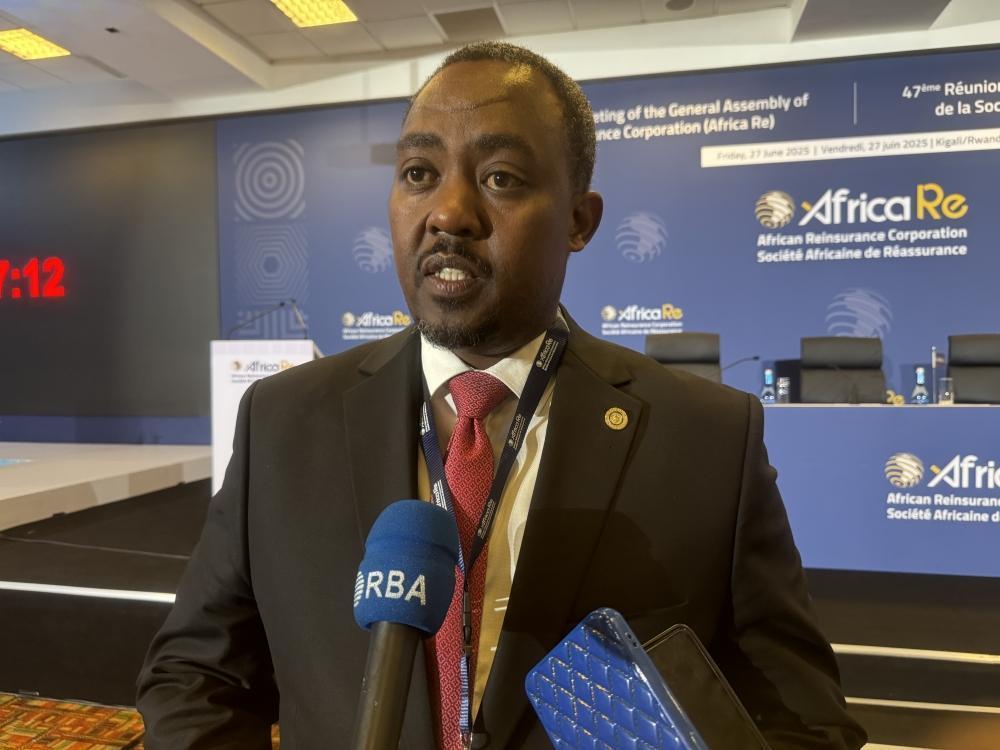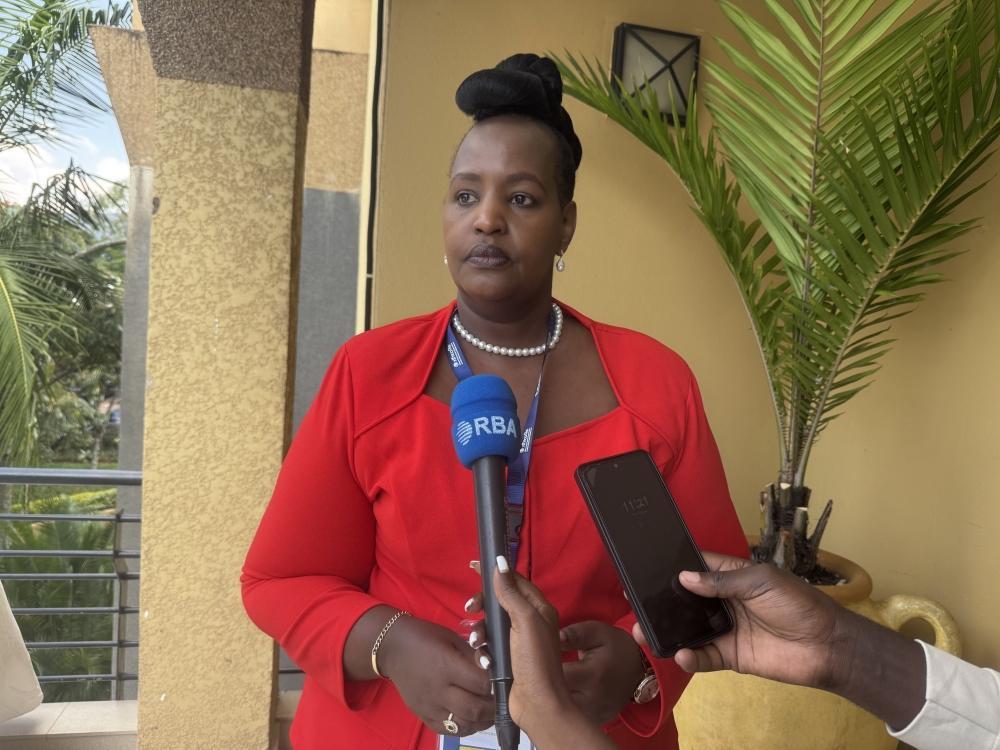Africa-Press – Rwanda. Rwanda’s insurance sector is eager to strengthen its partnership with the African Reinsurance Corporation, a reinsurance company based in Lagos, Nigeria, to expand protection coverage in line with national economic growth goals.
This was highlighted during the General Assembly of the African Reinsurance Corporation (generally known as Africa Re), held in Kigali, on June 27. The goal is to increase insurance penetration from 1.9 per cent to over 4 per cent of the country’s GDP within the next decade, according to the insurers’ association.
Overall, Africa Re serves as a reinsurer by backing primary insurance companies that lack sufficient capacity to cover high-risk sectors like aviation and oil, upon an agreed fee. These insurers retain manageable risks and transfer the excess to Africa Re, which helps insure the risks they cannot handle due to limited capital or resources, according to Africa Re Board Chairperson Moustapha Coulibaly.
Africa Re Board Chairperson Moustapha Coulibaly during an interview with journalists at the meeting on June 27 (Emmanuel Ntirenganya)
Andrew Kulayige, the Chairperson of the Rwanda Association of Insurers (ASSAR), underscored the importance of Africa Re’s support in achieving this ambitious target.
“When you look at our ambitious plan as insurers, we’re looking at more than doubling our current insurance penetration from 1.9 per cent of GDP to more than 4 per cent of GDP in the next 10 years. For us to do that, we need strong partners like Africa Re,” he said, adding that innovation, digital platforms, and product diversification will be essential in reaching underserved populations.
“Currently, we have normal products for insurance. We need to think through, with the help of partners like Africa Re, on the different ways we can penetrate the market through digital platforms, through innovation, through diversification of products, but also reaching out to the underserved market. We can’t get there without fully appreciating the different types of products that we can go through,” he said.
Andrew Kulayige, the Chairperson of the Rwanda Association of Insurers (ASSAR) speaks to journalists at the meeting (Emmanuel Ntirenganya)
“And as we innovate new products, we count on the support to understand what we can pick from what is working in other markets and tailor it for this market for us to be able to achieve our dream of serving the underserved in the insurance market.”
Bridging the protection gap
Central Bank Governor Soraya Hakuziyaremye underscored the need to close Rwanda’s insurance protection gap, particularly for rural citizens facing life shocks such as illness, crop failure, or natural disasters.
“As we look to the future, the partnership between government financial institutions and pan-African institutions such as Africa Re, will remain critical. We must continue working together to strengthen regulatory frameworks to invest in technology, continue building human capital and unlock long-term financing for climate risk but also sustainable development,” she said.
Hakuziyaremye cited four key areas for Africa Re’s continued support, namely implementation of the national insurance strategy; development of climate and disaster risk financing tools; actuarial and regulatory capacity-building; and digital transformation through insurance technology and data analytics.
Insurance sector growth and outlook
Africa Re’s Coulibaly referred to Rwanda’s progress since the establishment of SONARWA – as the first insurance firm in the country – in 1975. The country now has over 900 insurance agents and brokers and more than a dozen insurance companies.
Coulibaly lauded Rwanda’s achievements in public insurance, especially the community-based health insurance scheme, and highlighted the rapid growth of private insurance subsector, which he said now accounts for 62 per cent of premium income.
Private sector gross premium income grew from Rwf97 billion in 2020 to Rwf216 billion in 2024—an annual average growth rate of 22 per cent, Coulibaly indicated, adding that total market premiums rose from Rwf153 billion to Rwf350 billion (approx. $250 million) over the same period.
“At this pace, and with the expected new market development initiating from the upcoming National Insurance Strategy, the future is therefore bright for the Rwandan insurance industry,” he observed.
He reaffirmed Africa Re’s commitment to supporting Rwanda and other African countries in closing the insurance gap compared to advanced economies, to achieve at least 7 per cent insurance to GDP ratio, from around 2 and 5 per cent currently.
“Despite this difficult regional economic environment, Africa Re was able to grow its insurance revenue to above $1.2 billion, which represents a 9.7 per cent growth in 2024,” he said.
Importance of keeping African premiums in Africa
Coulibaly pointed out ongoing challenges facing Africa’s insurance sector, including low public trust, poor distribution, limited income, inflation, and weak institutional capacity.
“In the face of these challenges, we hereby advocate for an enabling regulatory environment and consistent enforcement to remove obstacles to market growth. We believe that the development of a comprehensive national insurance strategy is the right step in the right direction,” he said.
ASSAR Managing Director Denise Rwakayija (Emmanuel Ntirenganya)
ASSAR Managing Director Denise Rwakayija underscored Africa Re’s role in strengthening Africa’s insurance markets by retaining premiums within the continent.
“Before Africa Re, insurers had to source reinsurance service abroad, which was taking a significant portion of premiums outside of the continent,” she said.
According to Africa Re, the reinsurer paid more than $4 billion in gross claims across Africa for lost lives, damaged or lost property, and other economic losses over the last decade.
Africa Re operates in all 54 African countries, covering a range of risks including agriculture, climate change, cyber threats, political violence, terrorism, and kidnapping.
For More News And Analysis About Rwanda Follow Africa-Press









